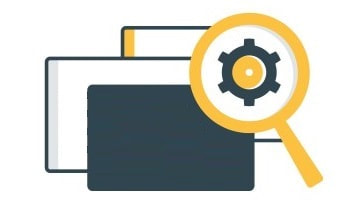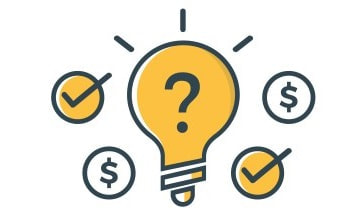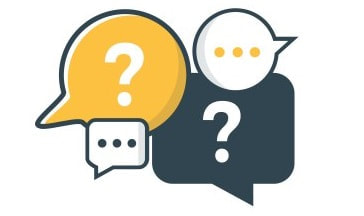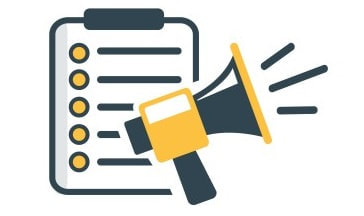Open Banking Explained - The Definitive New Zealand Guide
Our guide explains what Open Banking is, the benefits, the risks and what it means for you. We have worked with the specialists at Akahu, New Zealand's pioneer in open banking and open finance infrastructure, to publish this guide.
Updated 22 July 2024
Open Banking is somewhat talked about but not widely understood. The general idea is that you give permission to a third-party company to access your banking data (i.e. transaction history and what products you have) to help speed up applications for credit card, loans, mortgages, among other products.
We have worked with the specialists at Akahu, New Zealand's pioneer in open banking and open finance infrastructure, to publish this guide. Our guide covers:
Disclaimer: MoneyHub has no financial relationship with Akahu. We rely on their expertise as New Zealand's pioneer in open banking and open finance infrastructure to help publish and update this guide.
We have worked with the specialists at Akahu, New Zealand's pioneer in open banking and open finance infrastructure, to publish this guide. Our guide covers:
- What is Open Banking?
- Open Banking in Action
- Risks and Concerns
- Open Banking Regulation in New Zealand
- Frequently Asked Questions
- Our Conclusion
Disclaimer: MoneyHub has no financial relationship with Akahu. We rely on their expertise as New Zealand's pioneer in open banking and open finance infrastructure to help publish and update this guide.
What is Open Banking?
- Open banking is software that enables data exchange between banks and third-party services. For example, you can choose to digitally share your bank transaction history with a lender when applying for a loan.
- By itself, open banking delivers nothing of value to consumers. It's simply digital infrastructure that enables third parties to build novel and enhanced consumer services.
- Open banking aims to give consumers control of their financial data and unlock competition and innovation in financial services.
- Open banking is always your choice. You decide whether linking your bank account to a third-party service is valuable and whether you trust that service with access
- Industry insights suggest over one million consumers are estimated to use open banking-enabled services in New Zealand annually.
Understanding the Data Exchange Mechanism of Open Banking
- To harness open banking, third-party services need a way to exchange data with a consumer's bank. This data exchange happens via APIs, an acronym that means "application programming interface." An API is a way for the bank and third-party systems to communicate with each other.
- APIs allow third-party services to request and receive your bank information (if you've given permission to do so).
- Most third-party services use an open banking intermediary like Akahu to access bank APIs instead of having their own internal team manage those data integrations.
Open Banking in Action
Below are examples of services that are enabled by open banking technology.
1. Personal Finance Tools
- Consumers often use different service providers for banking, KiwiSaver, credit cards, Buy Now Pay Later, loans, investment funds, and share trading.
- Using open banking, personal financial management tools enable consumers to aggregate data from these disparate accounts into a single view, giving them full visibility of their finances and the ability to track their net worth over time.
- Some personal financial management services also provide budgeting tools. Using open banking, these tools typically ingest historic transaction data from connected bank accounts so that a historical and forward-looking budget can be automatically generated. Then, as new transaction data flows from connected financial accounts into the budgeting tool each day, the consumer can automatically track against this budget.
- Examples of personal finance management services in New Zealand include PocketSmith, BudgetBuddie, and SortMe.
2. Lending Processes
When a consumer applies for a loan, the lender must assess whether the applicant can afford it. The lender will often need to verify the consumer's income, verify the details of any existing loans, and understand the consumer's spending patterns.
If a consumer fills out a digital loan application form and manually enters the monthly spend amounts in categories like insurance or groceries, it can lead to inaccurate inputs or abandonment of the process. Open banking enables a consumer to link their bank accounts so that the lender can fetch relevant data and prepopulate those form fields. This makes the application process much faster and more accurate.
If a consumer fills out a digital loan application form and manually enters the monthly spend amounts in categories like insurance or groceries, it can lead to inaccurate inputs or abandonment of the process. Open banking enables a consumer to link their bank accounts so that the lender can fetch relevant data and prepopulate those form fields. This makes the application process much faster and more accurate.
3. Financial Advice
- Before a financial advisor can provide advice to a client, they must undergo a" fact-finding" process to understand the client's objectives, needs, and priorities.
- This fact-finding process involves collecting financial data, and the advisor will typically want to know about their client's income, expenses, and the balances of all relevant financial accounts. Data from the fact-finding process enables an advisor to provide advice that is based on recent data and personalised to the client.
- Open banking provides advisors and clients with a simple, accurate, and ongoing way to have a shared view of financial data. This enables advisors to provide more proactive and responsive advice throughout the advisory relationship.
4. Verification
Banks hold a trove of identity information about their customers. Open banking enables a consumer to share access to their identity data when onboarding with another service. Some common examples are:
- Address verification: A consumer can share their address from a bank account, avoiding manual forms of address verification such as providing a utility bill.
- Name verification: When onboarding with a new service, consumers can share their name from a bank account. That name (verified by the bank) is matched against the name that the consumer presents to the new service from their driver's licence or passport, which does the same job as biometric verification.
- Bank account verification: A consumer can verify their bank account with a third-party service by sharing the account holder's name and account number. As with all open banking processes, the data is retrieved directly from the bank, so it avoids the risk of a consumer uploading a fraudulent document.
5. Payroll Services
Payroll services simplify complex employment regulation, making it simple and fast to manage employee calculations. These services have historically stopped at the calculations, leaving the employer to arrange the actual payments to employees.
Open banking enables an employer to link its bank account and simply tap a "pay now" button in the payroll service once the payroll calculations are finalised. This avoids the need to download and process a payment file and the common practice of providing payroll or accounting personnel with bank login details to process that payment file.
Examples in New Zealand include PaySauce, PayHero, and Employment Hero.
Open banking enables an employer to link its bank account and simply tap a "pay now" button in the payroll service once the payroll calculations are finalised. This avoids the need to download and process a payment file and the common practice of providing payroll or accounting personnel with bank login details to process that payment file.
Examples in New Zealand include PaySauce, PayHero, and Employment Hero.
6. Accounting Solutions
Perhaps the most well-known example in New Zealand is cloud-based accounting solutions, which use open banking to automate the ingestion of transaction data from an organisation's bank account. Examples include Xero, Solo, and The Access Group.
7. Wallet Top-Ups
When topping up an investment account, consumers are typically presented with the option to pay via card or manual bank payment. Card payments usually come with fees, and manual bank payments require customers to leave the investment app.
Open banking enables a consumer to link their bank account to an investment service with an "enduring payment consent," creating a low-cost in-app payment experience. Examples include Tiger Brokers, Sharesies and others.
Plenty of other open banking use cases in New Zealand don't fit neatly into a defined category. For example:
One of the exciting things about open banking is that we can't predict all of the features and products that will be built over the coming years. And that's the promise of open banking – as the infrastructure continues to develop, innovators have new capabilities to build the services of tomorrow.
Open banking enables a consumer to link their bank account to an investment service with an "enduring payment consent," creating a low-cost in-app payment experience. Examples include Tiger Brokers, Sharesies and others.
Plenty of other open banking use cases in New Zealand don't fit neatly into a defined category. For example:
- MyRent uses open banking data feeds to automate the reconciliation of rental payments for property owners.
- Prosaic uses open banking to make it simple for business owners to identify and claim tax deductions.
- Functional Fitness uses identity data via open banking to verify the identity of a new gym member and uses that same bank account connection to initiate recurring subscription payments.
- Otto uses open banking to track a consumer's bank account balances against savings goals, providing a playful rewards system to incentivise saving.
One of the exciting things about open banking is that we can't predict all of the features and products that will be built over the coming years. And that's the promise of open banking – as the infrastructure continues to develop, innovators have new capabilities to build the services of tomorrow.
Risks and Concerns with Open Banking
1. Data security
2. Unregulated forms of open banking
- Data breaches pose the largest risk to using open banking technology. If you decide to share sensitive data with a third party, then you need to trust that the third party will keep that data secure.
2. Unregulated forms of open banking
- To use most services powered by open banking services in New Zealand, consumers need to enter their login credentials into an intermediary service like Akahu to connect their bank with a third-party service.
- Entering login details into an intermediary service is suboptimal. While open banking providers have been operating in New Zealand for more than 15 years and there have not been any reported instances of credential leakage, hacking, or associated compromise of consumer bank accounts, it's preferable to transition to "purpose-built APIs" where a consumer can log in directly with their bank instead of via an intermediary.
- This transition cannot occur until banks make purpose-built APIs available to third-party services. That is why there has been significant media attention on open banking, with the Government, Commerce Commission, and market commentators all calling for banks to deliver fully functional open banking APIs so that all consumers can feel secure when using open banking-enabled products.
Open Banking Regulation in New Zealand
Purpose-built open banking APIs are slowly starting to emerge due to Government pressure and incoming regulation; we explain the latest developments below:
Customer and Product Data Bill
Who sets open banking standards?
Voluntary delivery of open banking APIs
Customer and Product Data Bill
- While no regulation has been implemented yet, the New Zealand Government is developing a legislative framework for data sharing through the Customer and Product Data Bill. This legislation is colloquially referred to as a "consumer data right" or "CDR", which is the name for similar regulation in Australia.
- New Zealand's CDR regime will force banks (and potentially other types of data holders) to make purpose-built open banking APIs available to accredited third-party services.
- Most open banking specialists, such as Akahu, think that the Customer and Product Data Bill is well-designed and represents the best regulatory option for open banking in New Zealand.
- This bill is expected to be enacted by the end of 2024, with secondary regulation finalised in 2025. Depending on compliance deadlines in the regulation, New Zealand's CDR regime could be active as soon as the end of 2025.
Who sets open banking standards?
- Open banking standards define how open banking APIs should work. Standardisation helps to create consistent functionality and makes it more efficient for third-party services to use APIs.
- Payments NZ is a bank-owned organisation that has been coordinating the development of open banking standards since 2017. In 2019, this work migrated to a subsidiary of Payments NZ called the API Centre.
- It's currently unclear whether the API Centre would continue to have a role in developing open banking standards under the CDR regime, or whether a body that is independent from industry would be better suited to that role.
Voluntary delivery of open banking APIs
- Some banks have voluntarily developed open banking APIs aligning with existing API Centre standards. However, the delivery of APIs and the ability for third parties to access those APIs have been very limited. As a result, most third parties have historically been unable to use these purpose-built APIs.
- This situation started to change in 2024, as the largest four banks delivered a basic payment API in May 2024 and have committed to delivering a basic data API by 30 November 2024. Uncertainty remains about whether third parties will be able to access these voluntary APIs, and whether the terms of accessing these voluntary APIs will be viable.
- When it becomes operational, the CDR regime is broadly expected to replace the voluntary delivery of open banking APIs.
Open Banking Expert insights from Josh Daniell, co-founder of Akahu:
|
In this section, Akahu explains how regulation will support open banking in New Zealand:
|
Open Banking - Frequently Asked Questions
Open Banking isn't straightforward - to help make sense of its complexities, our list of frequently asked questions covers the practicalities and security concerns.
What is an example of Open Banking?
Open Banking sounds complicated, but here's a simple example to understand how it works in practice:
- When you apply for a home loan, your lender needs financial information to assess whether you can afford the loan.
- Rather than printing out the required documents and sending them to the lender, you can give the lender access to specific financial data from your bank accounts by using open banking. This digital flow guides you to log in to your bank, review it, and allow access to the information being requested by the lender.
- This makes the application process faster and simpler for you and instantly provides the lender with high-quality data to process your application.
What data can be shared?
Open banking enables a consumer to share their financial data with a trusted third party. This data can include transactions, account information, account balances, and scheduled payments.
Open banking can also enable payment initiation from your bank accounts. This is sometimes referred to as "pay-by-bank" or "account-to-account" payments.
Open banking can also enable payment initiation from your bank accounts. This is sometimes referred to as "pay-by-bank" or "account-to-account" payments.
Can you remove permission at any time?
Many data access requests will be one-off, such as sharing data to support a loan application. After that data has been accessed, the third party will have no further access to your data.
If you grant ongoing access to a third-party service, you can revoke that permission at any time. You can do this in your online banking settings or in the third-party service.
If you grant ongoing access to a third-party service, you can revoke that permission at any time. You can do this in your online banking settings or in the third-party service.
Can my data be accessed without my permission?
No, your data is not shared with a third party unless you explicitly grant that permission.
How does Open Banking affect my privacy?
Open Banking gives consumers control over their financial data. You decide which data to share and with whom. The data shared is only used for the specific purpose you have authorised, such as applying for a loan or using a financial management tool. Third-party providers must comply with privacy laws, ensuring your data is handled responsibly.
How does Open Banking improve the lending process?
Open Banking streamlines the lending process by allowing lenders to directly access your financial data with your permission. This reduces the need for manual documentation, speeds up the application process, and improves accuracy by providing real-time data.
Can Open Banking help me with budgeting and financial planning
Yes - many financial management tools use Open Banking to aggregate your financial data from multiple accounts, helping you to track spending, create budgets, and monitor your financial health. These tools provide insights and analytics to help you make informed financial decisions.
What is the role of intermediaries like Akahu in Open Banking?
Intermediaries like Akahu facilitate the secure exchange of data between banks and third-party services. They handle the technical aspects of connecting different systems, ensuring that data is shared safely and efficiently. They also implement stringent security measures and compliance standards to protect consumer data.
Open Banking – Our Conclusion and Further Resources
New Zealand was early to the "first wave" of open banking, with organisations like Xero pioneering the value that consumers can get from the portability of their financial data.
There is now a "second wave" of open banking taking place around the world. This wave is backed by specific open banking regulations in many countries, including New Zealand. This second wave is likely to permanently affect the operating environment of financial services.
Additional Resources
Further Reading and References
Contact Information
There is now a "second wave" of open banking taking place around the world. This wave is backed by specific open banking regulations in many countries, including New Zealand. This second wave is likely to permanently affect the operating environment of financial services.
Additional Resources
Further Reading and References
- MBIE: The Customer and Product Data Bill
- Commerce Commission: Retail payment system
- Payments NZ: Bank-led open banking standards
Contact Information
- For more information about open banking in New Zealand, we suggest contacting Akahu.








